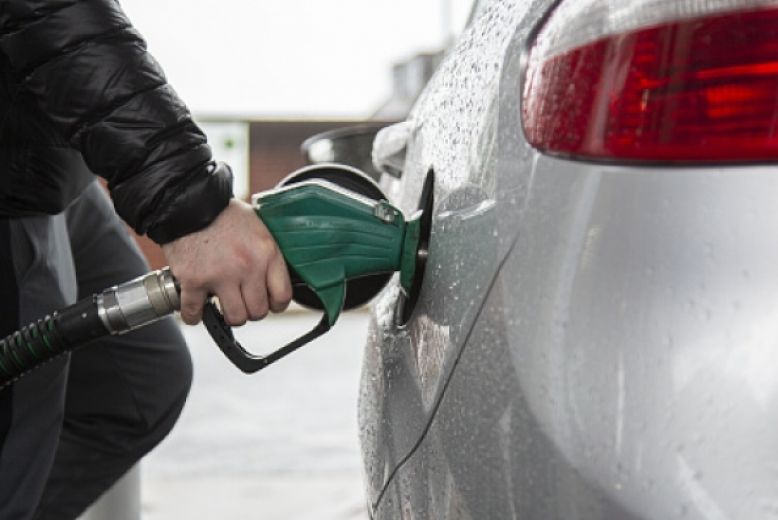The price of Brent crude oil dropped below $100 a barrel for the first time since the start of the month.
In total, Brent crude prices fell to $98 a barrel on Tuesday, where it has remained – although the volatility of the market could change this in the coming days.
Despite the drop in cost, the price of fuel at UK forecourts continue to hit record highs.
RAC fuel spokesman Simon Williams said: “Both petrol and diesel prices soared to yet new record heights on Tuesday. The average price of petrol went up by over a penny a litre to 164.98p and diesel by more than 2p to 176.04p which means petrol has now gone up 13p since the start of the month and diesel by a nearly 21p – both of which are the fastest rises on record.
“A full tank of unleaded for a family car is now almost £91 (£90.74) and diesel nearly £97 (£96.82). Drivers can save nearly 4p a litre by buying their fuel at one of the big four supermarkets where the average for petrol is 161.20p and 171.58p for diesel which would save them £2 a tank.”
Following Russia’s invasion of Ukraine, oil prices have rapidly increased, and the price of Brent crude had hit a 14-year high earlier this month.
Read: Over half a million cars incompatible with new ‘greener’ fuel
What makes up the price of petrol?
There are several determining factors that go into the prices drivers pay for their fuel, but this graphs break down what makes up the cost you are seeing a pumps across the country for petrol.
Why has the price of crude oil dropped?
The news of the drop in price of Brent crude has been welcomed, although there are many contributing factors that have led to today’s news.
The price has dropped due to increasing hopes of a ceasefire following talks between Russia and Ukraine – and discussions between leaders of both nations are set to resume this week.
There are also growing expectations that demand for fuel in China will decrease due to a surge in Covid-19 cases.
Government petition to reduce fuel duty and ease cost of living is gathering support
RAC Fuel Watch - latest petrol and diesel prices in the UK
What could happen next?
Although the price of Brent crude has dropped, savings have not yet passed over to UK drivers.
However, Mr Williams added: “We continue to remain hopeful that retailers will soon start to pass on recent reductions in the price of wholesale fuel to drivers when they next buy supply. That ought to lead to petrol stabilising at around 160p while diesel ought to stay where it is based on current wholesale prices.”
The rising costs of living and fuel have been headline news for weeks, and with no guarantee of it slowing down, there has been a surge in theft and violence at forecourts across the country.
According to the British Oil Security Syndicate, theft at petrol stations his risen to over £100m – up from £88m in 2019.
BOSS Managing Director Claire Nichol told the Telegraph: “Reported incidents of unpaid fuel are 215% higher when comparing the number of incidents reported during the first week in March 2022 with reports during the first week in December 2021.”
There have also been rising reports of aggression and violence towards staff working in stations across the UK.
With much uncertainty facing drivers and suppliers in the weeks and months ahead – many are wondering what the future holds.
Williams comments: “The big question is how keen will retailers be to pass on savings at the pumps as they will no doubt be extremely conscious of protecting themselves from any more rises that could suddenly materialise.
“Drivers badly need a break from these relentless daily rises. With the Spring Statement just a week away drivers will be looking to the Chancellor to end their misery by cutting duty or VAT. One thing’s for sure simply reiterating that fuel duty has been frozen at 58p a litre simply isn’t going to cut it.”

Complete peace of mind for less
• Cheaper than AA Price Promise or your money back^
• We get to most breakdowns in 60 mins or less
• Our patrols fix 4/5 breakdowns on the spot













